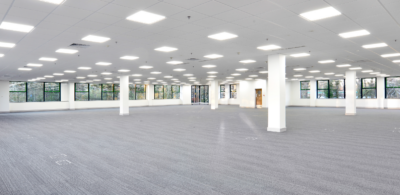Workforce demographics are in a state of constant flux. To keep up, today’s workplace needs to be proficient at adapting. As with every generation, we see changes in habits, preferences and requirements from our employees. So what makes flexibility more important now?
Millennials. They have been the catalyst for some of the biggest culture shifts that we’ve seen in decades. Just a few years ago, many thought that millennials were the self-absorbed, selfie-crazed generation. This notion couldn’t be further from the truth. This is a group that wants positive change; one that speaks up for equality and socio-economic change;and one that isn’t looking for the easy way out, but largely wants to do the right thing.
It doesn’t take much digging to learn that this emerging workforce is interested in noble principles such as community involvement, sound environmental practices, equality and collaboration. Knowing this, successful organizations need to not only make sound financial decisions, but ensure that all stakeholders — starting with employees —feel they work for an organization that is committed to making a positive difference in the world.
I recently hosted a lunch for DC-area real estate college interns to network and learn more about the industry. While I was there, I wanted to get a better understanding of their outlook on prospective businesses, as well as their values and what was important to them in selecting a future job. Before the lunch was over, they were asked to complete a survey about their views. Their feedback surprised and inspired me! The intangibles outweighed more commonly regarded benefits such as salary, location and allowances. Many of these interns have yet to live on their own outside of dorm rooms or shared apartments, so it will be interesting to see how their views may shift, but I’m hopeful at the future of our workforce.
The Right Perks
In the survey taken by the interns, “Training and career prospects” ranked higher in importance (32%) than any other element . This generation isn’t interested in frilly sweeteners that don’t enhance their jobs or careers. While most everyone enjoys stocked break rooms or regularly-scheduled happy hours, this group expressed that they are more interested in career longevity. Therefore, appealing perks include workshops and corporate university classes that enrich and help them grow in their positions. Survey results also showed that recognition is a positive motivator that attracts good talent to not only stay, but thrive. A positive workplace, of course, is evergreen and will always attract good talent.
Company Values and Community Presence
Community involvement is a large factor in choosing a workplace for millennials. Our participants ranked this as the second most important aspect in choosing a workplace, at 29%. Companies that get involved in their communities are able to build relationships, boost visibility and create brand awareness. It can be as simple as sponsoring a local race or neighborhood group, or can be a larger endeavor such as empowering employee volunteerism with company programs and allowing time off to volunteer. If it’s authentic and the company walks the walk, they stand out among their peers and tend to have both a happier workforce as well as a loyal customer base.
Diversity and Inclusion
Today’s emerging workforce also craves collaboration —not just on team projects —but on a larger scale. This is the generation of crowdsourcing and peer production — teamwork is important to them. Therefore, an organization that values unique traits like diversity and inclusion, and doesn’t favor gender, race, ethnicity or age, resonates with millennials. Modern, innovative workspaces that foster collaboration complement this mindset and are a change from the norm of cubicle walls and closed office doors.
Environmental Practices
In line with their desire to seek out organizations whose business leaders are proactive about making a positive impact on society, sound environmental practices are extremely important to this generation as well. Millennials are starting to see the impact of pollution on the environment and want to preserve it for generations to come. The carbon footprint left behind by large companies can be staggering. In addition to reducing indirect greenhouse gas emissions through the reduction of electrical consumption, initiatives such as zero-waste policies, increased recycling programs and rooftop gardens signal social values that align with younger workers. These are enticing carrots for the emerging millennial workforce.
By 2025, millennials will make up the lion’s share of the workforce. With that in mind, creating a corporate culture that new employees want to be a part of is more crucial than ever. Institutions that don’t embrace career growth and social responsibility will have an increasingly difficult time attracting and retaining top talent. Perhaps more importantly, those same people will start to influence which companies their employers do business with. As a service-oriented industry, making human connections is vital to commercial real estate. Those that embrace these values will be in a position to thrive and those that don’t will almost certainly struggle.
A mentor, a real estate executive and a mom, Karen spends time all over the map. If she isn’t traveling, Karen is busy with everything from IREM to Virginia Tech’s Real Estate program. When she has a few minutes to spare, she considers it a personal mission to find new homes for all of Lucky Dog Animal Rescue’s four-legged companions. Keep up with Karen on social media @KarenJWhitt.

 Karen Whitt
Karen Whitt
 Martin Woodrow
Martin Woodrow Chris Zlocki
Chris Zlocki
 Aaron Jodka
Aaron Jodka
 Andrew Steele
Andrew Steele